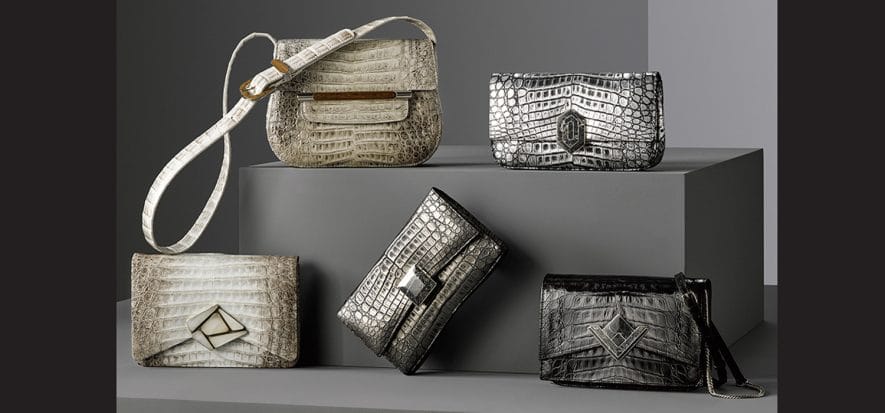“Chanel gave up making use of exotic skins because they could not manage to control their production: that is just the opposite of what we have been planning”. Alexandra de Royere, chief executive officer and creative director of Solantu, illustrated, while speaking to WWD, the business growth of the Argentinian brand, which makes use of latirostris caiman skins exclusively. Solantu belongs to the Grupo Insud, an Argentinian giant that actively plays in the food farming industry as well as in scientific research. Insud made some investments in a latirostris breeding farm: such species was native-born in the Corrientes marshes, located in the north of Argentina. “Purchasing one of our bags – carried on de Royere – does play a part in the safeguard and protection of this species while supporting, at the same time, craftsmanship”. Bags by Solantu are hand-made in Salta, a small town in the Andes. “Over twelve years, Grupo Insud saved the latirostris caiman from its extinction. Such reptile is generally aggressive in the wildlife, but in the breeding we successfully created a different environment, as we treated caimans respectfully and prevented them from isolation”. Repopulation abides by certification by CITES (Convention on International Trade in Endangered Species), under the aegis of Wild Fauna and Flora. Bag models (price ranges from 1,700 up to 5,000 dollars), designed by Veronica Santesteban, draw inspiration from the Art Deco style, which was so popular in Buenos Aires in the thirties. Moda Operandi and Harvey Nichols also sell them.
Picture from solantu.com










